#young dracula dr
Explore tagged Tumblr posts
Text
yaknow what i personally think is the best thing about my young dracula DR? it's in the late 2000s so i get to be an emo little shit. just full on side fringe,flip phones,sneaking into MCR and FOB and Panic! and paramore concerts by hypnotizing the staff,kandi bracelets everywhere,mega eyeliner, ipod touches, early Tumblr, myspace pics of me being all vampiric and emo just because i can. i'm so excited guys i'm gonna meet ryro and put eyeliner on vlad and i cant wait to shift AAAAHHH
*note- it is a slightly better version of the 2000s with all the bad stuff scripted out, only the tech and the aesthetics are being included!!!
#reality shifting#shifting#desired reality#shifting community#shiftblr#reality shift#shifting realities#shifting blog#reality shifter#shifting antis dni#Young Dracula DR
25 notes
·
View notes
Text
oooh i'm gonna do this for young dracula!!
yeah it's based on a show for teens, theres not a massive fandom for it nowadays but back in 2012 there was a lot of people who liked it.
well i think the main things are that i can go out in the sun and i study different school subjects. also vampires aren't real
lets just say, i'm a british teenage girl
oh god no, not telling anyone. my sister might know but probably not
mostly because i love vampires, and don't tell him this but vlad is gorgeous and might have been a crush i had when growing up
well it's about 10 years in the future so maybe AI? or tiktok?
yeah probably the murder.
not my main DR but definately my favorite. and i think the best part is that i get to dress alternative and be known as a boy (both things that i would either not be able to achieve in the place i shifted from or that would not be possible for a very long while.) ooh and i have vampire fangs
Pretend you’re on a secret shifting account in your desired reality and you told people you shifted here. These are questions people sent in for you to answer
1. Wait is this reality based on something fictional in your original reality??? If so please tell me what it was and if it’s good, I don��t wanna be from a movie everyone hates lmao
2. What are some little everyday things that are different from your original reality?
3. Can you give us a hint about your real identity?? Please I’m so curious
4. Do you think anyone you know irl will figure out you shifted here? Are you gonna tell anyone?
5. Okay I’ve lived here my whole existence and I don’t get the hype, like why would you even shift here??
6. What do you think would surprise us most if we went to your original reality? Like something that would seem weird to people here
7. Is there anything you think is worse about this reality than your original reality? Ik obviously you want to be here and so it’s probably better overall but like it’s not perfect, right?
8. What’s your favorite part of this reality? Is it your main DR?
#reality shifting#shiftblr#reality shifter#shifting realities#shifting#reality shifting questions#shiftinconsciousness#shifting antis dni#shifting blog#shifting reality#vampire shifting#young dracula dr
107 notes
·
View notes
Text
cw: blood!!

ok i actually need ur help the pitt fandom. i know there are vampire whitaker fics out there but i j dont know where. please put them in the comments or like idk dm them to me pls lead the horse to water
#art#fanart#the pitt fanart#the pitt#gerran howell#dennis whitaker#dr whitaker#young dracula#uhhhh mmm yeah. yeah i think this is so hot#any dennis whitaker ship please please#im begging!!!#i might write one too . or actually u can write one ... based off of this... mm#pittposting
262 notes
·
View notes
Text

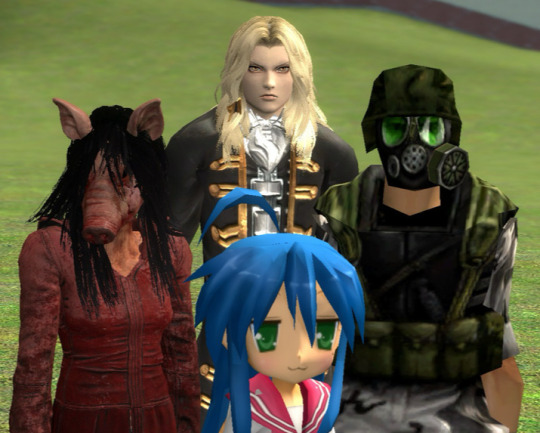

i highly recommend making Blorbo Family Portraits in gmod
#castlevania#resident evil#half life#lucky star#mouthwashing#saw#dbd#postal#duke nukem#doom#doom guy#doom slayer#konata izumi#amanda young#dracula tepes#alucard#chris redfield#hlvrai#barney calhoun#gordon freeman#gman#dr bubby#albert wesker#leon kennedy#claire redfield#curly
459 notes
·
View notes
Text

Gerran Howell / digital painting by Miki Foldi
#gerran howell#miki foldi#corel painter master#digital art#digital painting#no ai art#the pitt#michael robinavitch#noah wyle#medical drama#hbo series#e.r.#er 1994#welsh actors#young dracula#emerald city#catch 22#the song of names#1917 movie#out there#ludwig#the pitt fanart#wacom art#hand painted#original textures#dennis whitaker#dr dennis whitaker#artists on tumblr
230 notes
·
View notes
Text
does everyone (mainly late 20/early 30 year olds (also maybe UK only idk if it showed elsewhere)) watching The Pitt know that Whitaker was in Young Dracula where Gerran played Vlad, Count Dracula’s son, and he and his family move from Transylvania to Wales


because when i was young i was OBSESSED and i’m glad he’s back on my screen
57 notes
·
View notes
Text
oh my god i don’t go here but ive only been able to interpret dennis whitaker as deeply british which makes sense because his actor’s welsh but more importantly he was the main character of a show i watched a lot as a kid and was likely slightly informative of my transgenderism
#briefly listened to a clip to make sure his character didn’t actually have a british accent#then physically recoiled when i heard dennis whitaker’s accent#gerran howell#dennis whitaker#the pitt#young dracula#tragically he’s now too famous to be a character of note on dr who and not famous enough to be a cameo character#yes he’s (apparently) in a 3rd dr audio story but that’s not real
27 notes
·
View notes
Text
It seems Whitaker got his wish to no longer follow in his fathers footsteps after all
#the pitt#dr whitaker#dennis whitaker#gerran howell#young dracula#if you don’t know what I’m talking about#the actor that plays Whitaker played Dracula’s son in#quite possibly the greatest vampire show to ever exist#I knew he was from the uk the moment I saw his haircut#dr whittaker
22 notes
·
View notes
Text
Guys how badly will I be penalised if I have a collage of my fav immortal sexy characters as the front of my research project presentation (it’s relevant I swear🤞)
#why we age and how to stop it: an analysis of three hallmarks of ageing#dr who#david tennant#dorian gray#ben barnes#the picture of dorian gray#deadpool and wolverine#deadpool#wolverine#nathan young#legolas#lady cassandra#edward cullen#Dracula#twilight#count dracula#lestat de lioncourt
19 notes
·
View notes
Text
I love this show so fucking much but I watched Young Dracula growing up and whenever I see Dennis I’m like. Vlad ! 😀! Why you getting pissed on dude!
what if you were a MED STUDENT and it was you FIRST SHIFT in emergency medicine and then you spilled MYLANTA on yourself and you had to CHANGE YOUR SCRUBS and then a patient BLED all over you and you had to CHANGE YOUR SCRUBS and RIGHT AFTER THAT a boy BARFED BLOOD all over you and you had to CHANGE YOUR SCRUBS and then a some guy PEED on you and you had to CHANGE YOUR SCRUBS and you looked like a BABY OWL
16K notes
·
View notes
Text
so i was trying to script a second young dracula DR but i accidentally AUd too close to the sun and now it's basically a whole new story
(i was trying to make a version where Vlad stayed in stokely but it ended up being wayyyy too different to the original show)
#reality shifting#shifting#desired reality#reality shift#shifting blog#dr scripting#young dracula dr
3 notes
·
View notes
Text
Hey so like many of you, I saw that article about how people are going into college having read no classic books. And believe it or not, I've been pissed about this for years. Like the article revealed, a good chunk of American Schools don't require students to actually read books, rather they just give them an excerpt and tell them how to feel about it. Which is bullshit.
So like. As a positivity post, let's use this time to recommend actually good classic books that you've actually enjoyed reading! I know that Dracula Daily and Epic the Musical have wonderfully tricked y'all into reading Dracula and The Odyssey, and I've seen a resurgence of Picture of Dorian Gray readership out of spite for N-tflix, so let's keep the ball rolling!
My absolute favorite books of all time are The Haunting of Hill House and We Have Always Lived in the Castle by Shirley Jackson. Classic psychological horror books about unhinged women.
I adore The Bad Seed by William March. It's widely considered to be the first "creepy child" book in American literature, so reading it now you're like "wow that's kinda cliche- oh my god this is what started it. This was ground zero."
I remember the feelings of validation I got when people realized Dracula wasn't actually a love story. For further feelings of validation, please read Frankenstein by Mary Shelley and The Strange Case of Dr. Jekyll and Mr. Hyde by Robert Louis Stevenson. There's a lot the more popular adaptations missed out on.
Rebecca by Daphne du Maurier is an absolute gem of a book. It's a slow-build psychological study so it may not be for everyone, but damn do the plot twists hit. It's a really good book to go into blind, but I will say that its handling of abuse victims is actually insanely good for the time period it was written in.
Moving on from horror, you know people who say "I loved this book so much I couldn't put it down"? That was me as a kid reading A Little Princess by Frances Hodgson Burnett. Picked it up while bored at the library and was glued to it until I finished it.
Peter Pan and Wendy by JM Barrie was also a childhood favorite of mine. Next time someone bitches about Woke Casting, tell them that the original 1911 Peter Pan novel had canon nonbinary fairies.
Watership Down by Richard Adams is my sister Cori's favorite book period. If you were a Warrior Cats, Guardians of Ga'Hoole or Wings of Fire kid, you owe a metric fuckton to Watership Down and its "little animals on a big adventure" setup.
A Raisin in the Sun by Lorraine Hansberry was a play and not a book first, but damn if it isn't a good fucking read. It was also named after a Langston Hughes poem, who's also an absolutely incredible author.
Fahrenheit 451 by Ray Bradbury is a book I absolutely adore and will defend until the day I die. It's so friggin good, y'all, I love it more than anything. You like people breaking out of fascist brainwashing? You like reading and value knowledge? You wanna see a guy basically predict the future of television back in 1953? Read Fahrenheit.
Huckleberry Finn by Mark Twain and To Kill a Mockingbird by Harper Lee are considered required reading for a reason: they're both really good books about young white children unlearning the racial biases of their time. Huck Finn specifically has the main character being told that he will go to hell if he frees a slave, and deciding eternal damnation would be worth it.
As a sidenote, another Mark Twain book I was obsessed with as a kid was A Connecticut Yankee in King Arthur's Court. Exactly what it says on the tin, incredibly insane read.
If Beale Street Could Talk by James Baldwin is a heartbreaking but powerful book and a look at the racism of the time while still centering the love the two black protagonists feel for each other. Giovanni's Room by the same author is one that focuses on a MLM man struggling with his sexuality, and it's really important to see from the perspective of a queer man living in the 50s– as well as Baldwin's autobiographical novel, Go Tell it on the Mountain.
Agatha Christie mysteries are all still absolutely iconic, but Murder on the Orient Express is such a good read whether or not you know the end twist.
Maybe-controversial-maybe-not take: Lolita by Vladimir Nabokov is a good book if you have reading comprehension. No, you're not supposed to like the main character. He pretty much spells that out for you at the end ffs.
Animal Farm by George Orwell was another favorite of mine; it was written as an obvious metaphor for the rise of fascism in Russia at the time and boy does it hit even now.
And finally, please read Shakespeare plays. As soon as you get used to their way of talking, they're not as hard to understand as people will lead you to believe. My absolute favorite is Twelfth Night- crossdressing, bisexual love triangles, yellow stockings... it's all a joy.
and those are just the ones i thought of off the top of my head! What're your guys' favorite classic books? Let's make everyone a reading list!
2K notes
·
View notes
Text
Ygor / Igor: A history of the character
Okay, horror kids, history lesson.
I see some people complaining about the new Dark Universe (in Epic Universe) Ygor not having a hunched back. Or worse, there are people who don’t even know who he is or think he’s too “extra.”
In regard to the hunchback depiction, it's not just concern about it being ableist (and it kind of is). The original Ygor wasn't even a hunchback.
Let's go back in time a bit.
In the first Universal Dracula movie (1931) Dracula had a bug eating mad henchman named Renfield (actually from the original novel by Bram Stoker). In that same year Renfield's actor (Dwight Frye) played another henchman, Fritz, in Frankenstein (Not a character from the novel by Mary Shelley that the film is based on).

Both were masterfully played as at least slightly crazed by Dwight Frye. Dwight would be typecast in these sort of roles until his untimely death in 1943.
In 1935 Bride of Frankenstein would have Dwight Frye play the sinister henchman, Karl.
The first Ygor (Spelt with a "Y" instead of an "I") was actually played by Bela Lugosi in the movie Son of Frankenstein in 1939 (The movie after Bride of Frankenstein). And then again in Ghost of Frankenstein (1942). This version of Ygor had a twisted neck from a botched hanging, instead of a hunchback.

This Ygor was a manipulative schemer and wanted to place his brain in the Frankenstein monster body and at the end of Ghost of Frankenstein he was successful, essentially killing the version of The Frankenstein Monster that had been portrayed by Boris Karloff.
The transference left Ygor's intellect in tact but he went blind in the new body. Test screenings of Frankenstein meet the Wolfman (1943) met with confused reactions from people who hadn't seen Son of Frankenstein or Ghost of Frankenstein and didn't understand why The Frankenstein Monster now spoke with Hungarian / Romanian accent. The movie was then heavily edited to remove every scene of The Frankenstein Monster talking (those scenes now lost) but he still walked around with his arms out stretched because of the blinding. This is why people sometimes think of the Frankenstein monster (and zombies) as walking around with their arms awkwardly out stretched in front of them.
The next hunchbacked assistant to a mad scientist in a Universal monster movie was Daniel (Played by J. Carrol Naish) in House of Frankenstein in 1944. In this movie he was the assistant of Doctor Niemann, played by Boris Karloff.
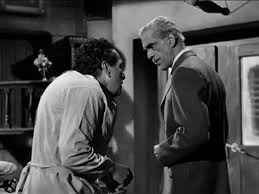
A hunchbacked woman assistant turned up in House of Dracula in 1945. And in 1962 Ygor / Igor was mentioned in the novelty song, Monster Mash. There was no physical description of Igor in the song but most imagine he was the hunchbacked version that now exists in our collective zeitgeist imagining. The Igor that is the collective zeitgeist imagining of the character fully manifested in the Mel Brooks comedy, Young Frankenstein. In fact most hunchbacked depictions of Igor are from comedies. This was in 1974. Five years later a TV movie was released called The Halloween That almost wasn’t. It also had an alternate title of The Night Dracula Saved the World. This also had the hunchbacked version of Igor but he served as a sort of stand-in for Renfield in that he was assisting Dracula instead of Dr. Frankenstein.
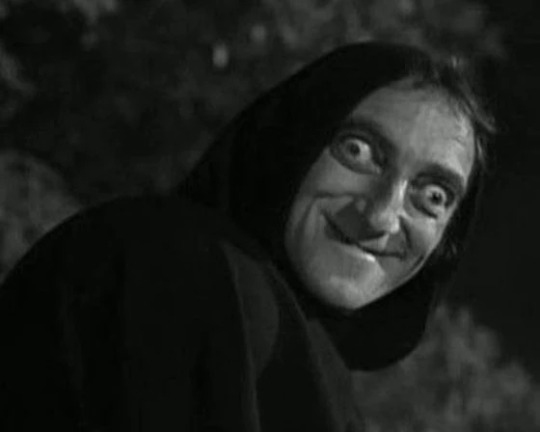
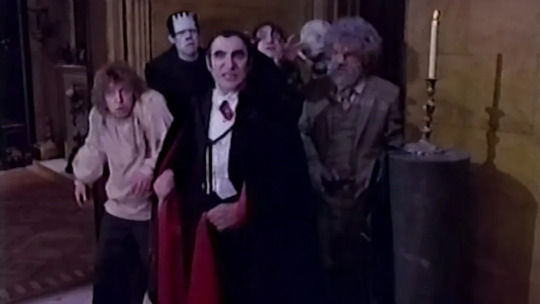
In 1984 The New Scooby Doo Mystery Tales did a special called A Halloween Hastle at Dracula’s Castle. This also featured a version of Igor assisting Dracula instead of Dr. Frankenstein. Somehow the late 70s brought about this shift that Igor was no longer associated with Frankenstein so much and was now associated with Count Dracula and this would linger on and off for a few decades.
In 1993’s Tim Burton’s The Nightmare before Christmas a version of Igor presents Dr. Finklestein with the plans for the skeletal flying reindeer that would pull Jack’s sleigh.
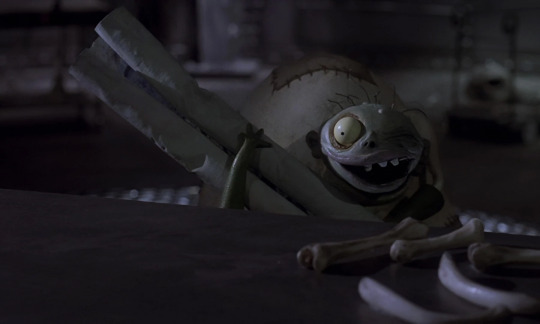
In 2004 a version of Igor turned up in the movie Van Helsing, first appearing to assist Dr. Frankenstien and then it turned out his real loyalty was to a bribe given to him by Count Dracula.
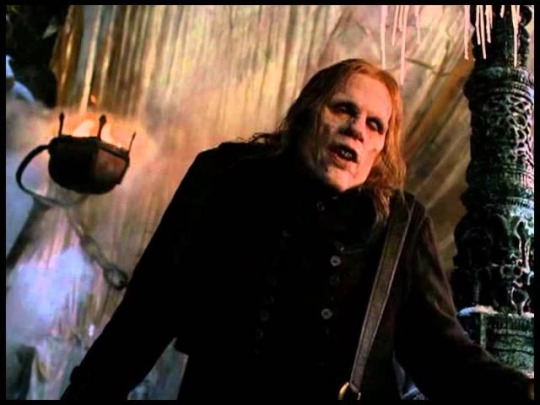
In 2008 an animated film was released called “Igor” about a world where you are born to be a lab assistant or a mad scientist. And an Igor rebels against his imposed role. It seems there was some Quasimodo from The Hunchback of NotreDame influence in some later depictions.

In 2015 the movie Victor Frankenstein Daniel Radcliffe played a version of Igor who befriends Victor Frankenstein.
Today the zeitgeist idea of Igor (or Ygor) merges all these depictions together, from serious to comedy, to crazy, and treacherous, from working for the Frankenstein family to working for Count Dracula. The twisted neck of Bela Lugosi’s version has long been forgotten in favor of Daniel’s hunchback that Mel Brooks secured in our cultural consciousness as a part of Igor.
Igor doesn’t need to be hunchbacked. He didn’t even start with one. So long as he’s crazy, sinister, and a morbid little ba$tard henchman he’s fine.

And yes, he should be “extra.” Igor should never be “toned down.” He’s a drama queen. We’re talking about someone, who in his tamest depiction, manipulated his way into having his brain placed in the Frankenstein Monster’s body.
Long live the crazy henchman!
239 notes
·
View notes
Text
Welcome to the Holmwood Foundation
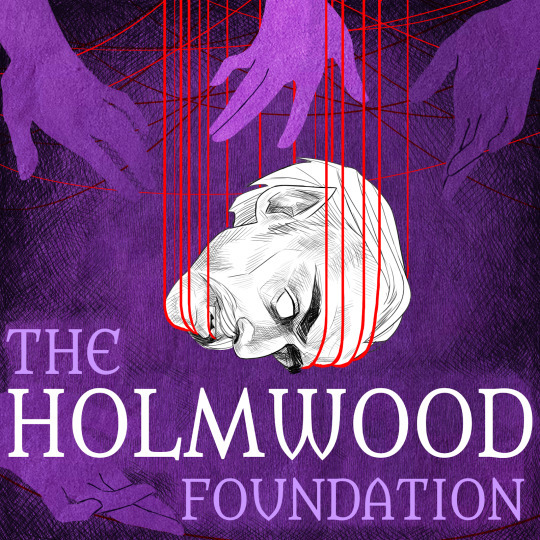
The Holmwood Foundation is a Found Footage Horror-Fiction Podcast created by Fio Trethewey @fiotrethewey (Big Finish: Gallifrey War Room, 18th Wall Productions) and Georgia Cook @georgiacooked (Big Finish: The Eleventh Doctor Chronicles, Gallifrey War Room, BBC Books, The Dracula Daily Sketch Collection). It is a modern day sequel to the gothic novel Dracula.
What is the Holmwood Foundation about?
Our story follows Jeremy Larkin (Played by Sean Carlsen) and Maddie Townsend (Played by Rebecca Root), two co-workers at the mysterious Holmwood Foundation, as they are possessed by the ghosts of Jonathan and Mina Harker, and embark on a road trip across the country in an effort to achieve their ghost's wishes: to stop Dracula once and for all. This is a story about identity and self discovery, family loyalty and devotion, all wrapped around a nightmare of a road trip with a rejuvenating severed head, incredibly sincere Victorian ghosts, and an analogue recorder. (Content Warnings for blood, horror themes and possession)
Where can we listen to The Holmwood Foundation?
Find our pilot episode on Acast, here:
Season one will be airing bi-weekly from June 10th to August 17th 2025.
Follow our feeds for updates and to receive the latest episodes as soon as they drop!
Who are the Cast and Crew?
In Season One we have:
Rebecca Root as Maddie Townsend and Mina Harker, and Seán Carlsen as Jeremy Larkin and Jonathan Harker.
In Season One, we will also be joined by:
Basil Waite as Tom Van Helsing Michelle Kelly as Henri Martin Samuel Clemens as Arthur Jones Andrew Biss as Jonathan Harker 3rd Jackie Calistaah as Elena David Ault as Dr Timothy Lake Candace Marie as Magdalena Swift Robyn Holdaway as Cam / Finn Karim Kronfli as Dave Anusia Battersby as Francesca Royale Lou Sutcliffe as Collins Flloyd Kennedy as Fay Townsend/Lucille Young Alasdair Stuart as Farmer Andy Dan Tyrie as Security Officer Elliott Crossley as Extraction Officer Alex Galdwin Becky Wright as Thralls & Phone Voice Jessica Carroll as Newsreader / Ruby Helen Stirling-Lane as Sophie Peter Wicks as Computer Voice Luke Kondor as Robert Swales Jonathon Carley as Francis and featuring Attila Puskás as Dracula
Joining our crew we have Samuel Clemens as Director, Katharine Armitage as our Script Editor and Benji Clifford as our Sound Engineer and Designer
Extra Content:
If you would like to discuss/post about/critique Holmwood without us seeing or interacting, we block the words Holmwouldn't, holmwouldn't, Holmwouldnt and holmwouldnt from all of our searches. Use any of the above as a DNI tag and your post will be blocked from our sight.
As well as episodes, we also release small pieces of content related to the Holmwood Foundation. These might be emails, or obituaries, maybe even interviews. Follow the links below to find all of that content together:
Extract List - Updated as of 30/03/25
Tags: Frequently Asked Questions Release Schedule Production Updates OOC Answered Asks Extracts Foundation Emails Holmwood Foundation Art
Social Media Links here: https://linktr.ee/theholmwoodfoundation
#the holmwood foundation#horror fiction podcast#audio drama#dracula#lgbtq+#horror#podcast#audio#scripted podcast#fiction horror podcast#fiction podcast#queer audio drama#horror podcast#audio fiction#vampire fiction#the holmwood foundation podcast#Youtube#dracula daily#holmwood release schedule
637 notes
·
View notes
Text
Creative Lineage - Dracula, Orlok, and the others
Here's the thing: the relationship between Nosferatu and Dracula is incredibly interesting - especially considering that Nosferatu (1922) was based on Dracula the book (1897), and most subsequent visual adaptations of Dracula for some reason used aspects of that film as inspiration, instead of adapting the original novel directly. As a result, there have always been endless comparisons between the two; but, in light of our most recent Nosferatu (2024), I must expand on what I personally think is their most significant (in regards to both plot development and analysis) difference.
TL;DR: it's characters. The main source of divergences between Dracula and Nosferatu is that these stories consist of vastly dissimilar characters, stuck in relatively similar situations.
I could go into heavy detail, and I will - under the cut, for the sake of all our dashboards.
At first glance, the stories of Dracula and Nosferatu are almost identical. The beginning sections follow the same essential plot beats - a young, newlywed solicitor travels to a creepy castle in Eastern Europe to assist a reclusive Count in his immigration to the West. This Count is, in fact, a vampire (otherwise known as a nosferatu), and terrorizes the young man for weeks, before departing and leaving him imprisoned; the solicitor escapes, is rescued from the wilderness by a nunnery, and returns home - where the Count has already begun his murderous process of settling in.
Here, in my opinion, is where the similarities end.
The key to understanding Nosferatu is remembering that Orlok is not Dracula; Thomas is not Jonathan; Ellen is not Mina, and so forth; and despite the mutual inspirations that affect each film adaptation of either story, the characters never react to the plot as a viewer would expect, if their precursory experience has been limited to only one or the other version.
Naturally, there are reasons for the continued addition of Nosferatu elements to Dracula adaptations. The most prominent of them is that, quite simply, audiences enjoy a fated, dangerous, inadvisable monster romance. By and large, we are titillated by the taboo; and - without adapting Le Fanu's Carmilla (1872), or adding a vampiric element to an adaptation of Leroux's The Phantom of the Opera (1910), or expanding on the queer elements of Jonathan Harker's sojourn in Transylvania - the easiest piece of classic media to sample for this sort of theme is Nosferatu (1922).
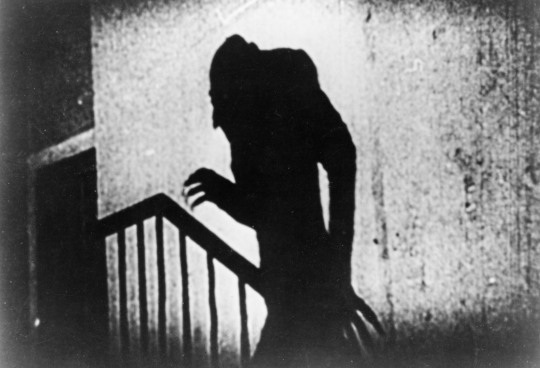
The 1922 film was, in a sense, an adaptation of Bram Stoker's Dracula (at least, enough to get the creators sued by his estate). In its efforts to circumvent copyright laws, it plays fast and loose with Stoker's lore and characters, renaming the Harkers, the Count, and everyone else - and, crucially, adding an element of erotic fixation that the vampire develops upon seeing a portrait of his solicitor's young wife. While still overseas, he builds a psychic connection with the melancholy and sensitive Ellen; it is both horrifying and sensual, and ultimately what she uses to destroy him - sacrificing her own blood and life to keep him out of his coffin until cock-crow. Ellen dies, but the sunlight annihilates Count Orlok, and the ending is a bittersweet new dawn.
This fixated, possessive, murderous eroticism (first displayed in its currently recognizable form by Carmilla) has become a cornerstone of the vampire genre. Elements of it are recognizable even in relatively modern media like Interview with the Vampire, Buffy the Vampire Slayer, Twilight, as well as numerous Dracula adaptations (of which the 1992 Coppola film might be the most well-known); it is even present in other, indirect offshoots like NBC's Hannibal TV series. It is, therefore, essential to note that these overtones did not exist in the same way in Dracula the novel; and the reason for that is, specifically, a difference in character.
Count Dracula, while dangerous, vampiric, and psychic, does not possess that same singular fascination with any given character in Stoker's book (save perhaps for Jonathan Harker, temporarily). He does drain Lucy night after night, and his method of killing, like with all vampires of his type, is allegorically sexual; but it isn't personal. She keeps receiving blood transfusions - effectively, refills!.. Other than her blood, he has little interest in her. He has companionship enough already - after all, he lives with three female vampires, who may be courtesans or wives, but are colloquially referred to as Vampire Brides; and, additionally, he maintains ongoing communication with some of the people and animals that live on his land. As such, when he does bite Jonathan's wife Mina, it is a practical decision - made in order to establish a potential spy in a group of people who appear to be intent on hunting him down.
Similarly, Mina herself - despite the usual characterization of her film portrayals, which are in many ways epitomized by Coppola's 1992 version - was not originally a vulnerable maiden. She is confident and educated, she has worked for a living as an educator prior to her marriage, and she knows how to use a typewriter as well as shorthand. She has no emotional connection to Dracula whatsoever beyond pure incandescent hatred; and, frankly, forcing her into any sort of romance with him is deeply inaccurate to her character - because Mina Harker is endlessly in love with her husband Jonathan.
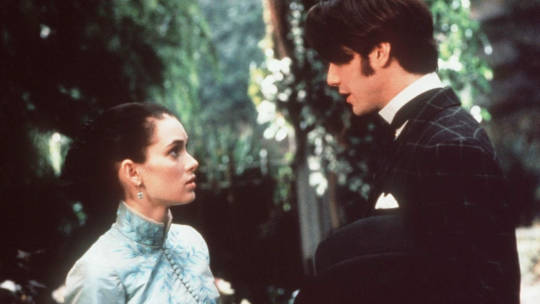
They may be on the lower end of middle-class, but relatively stable and planning a life together - not only as husband and wife, but as solicitor and secretary, as well. It's as close to a power couple as a novel from the 1890s will approach.
This is not the case for Ellen Hutter, largely because her social circumstances are far more precarious.

Unlike Mina, she has been forcibly isolated for the majority of her life. In that, she is yet another in the line of tragic madwomen of the gothic genre - mostly due to her eccentricities and her psychic gift, which (as the Eggers version specifies) manifested early in her childhood and became socially inexcusable during her teenage years, much like any real-world form of neurodivergence. It is implied that she has been institutionalized at some point as a result; and even prior to that, her father kept her confined indoors and away from other people in efforts to control her.
This isolation is what originally leads to her connection with Orlok - who was woken from his centuries-long deathlike sleep when he heard her reaching out into the ether, begging for a friend. Then, later in her life, the same circumstances unfortunately have a direct effect on her relationship with her husband Thomas, too; while she is attached to him, she cannot ignore that she is also utterly dependent on him as her ticket to a stable life, as well as out from under her father's thumb. Again, unlike Mina, she has no marketable skills or opportunities outside of this marriage; and while Thomas never shames her for her past, he still pressures her to ignore and repress it. The manifestations of her psychic ability concern, then unsettle, then frighten him - and, ultimately, there is a transactional aspect to their union. Thomas expects himself to move ahead in the world, like his friend Friedrich; and Ellen is expected to eventually become normal. She is expected to become a happy, pretty wife and mother like Anna Harding - because, while Thomas cares for her and fully intends to provide for her, he refuses to actually understand her.
Furthermore, it must be noted that leaving her father's estate for her husband's house did not entirely save Ellen from her isolation. Unlike Mina, she has no real friends of her own. Her only friend in the 2024 film is Anna, her husband's best friend's wife; and in the 1922 original, even that tentative affection is unclear. As such, Orlok remains the only character that truly knows and accepts her as she is - which inevitably complicates their dynamic.
While Orlok is, by his own admission, incapable of a human love, he is overwhelmingly and exclusively obsessed with Ellen. Unlike Dracula, who even in death keeps the company of his women and his people, Orlok exists in utter solitude. Prior to his death, he was also heavily avoided due to his being in "covenant with the devil." The 2024 film especially makes it clear that Ellen's call, which woke him from his slumber, is exceptional; their connection is intensely personal, and it is as close to love as he can ever feel.
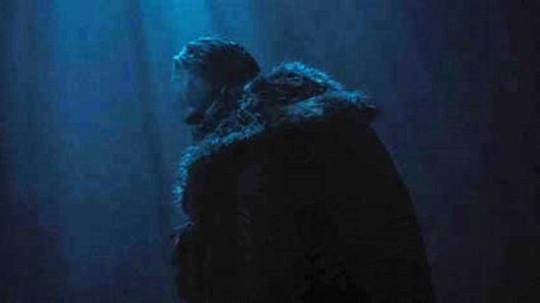
This aspect of the vampire's characterization fundamentally alters the context of his behaviour throughout the film. While Dracula moved to England in search of new hunting grounds and little else, Orlok goes to Germany specifically to find Ellen. By marrying Thomas Hutter, she broke the covenant she made with Orlok in her youth; thus, knowing that his claim has been infringed upon, the Count makes contact with Hutter's real estate law firm, summons him to the Carpathians, crosses the sea, and arrives to Wisborg as a physical manifestation of every dark urge and ability she has been attempting to repress. He torments her husband, tricks him into signing a marriage annulment, plagues the city, and murders the Hardings - all of it for her. She is his unique and all-consuming motivation. Again and again, he insists upon their covenant, reminding her that she has never truly belonged to the human world, and he is not incorrect in his assessment. Ellen's surrounding society infantilizes and binds her, often literally. She has nothing to lose by leaving it, except for her own sense of morality; and that is why Orlok, who represents her own abnormality, remains a beautiful, nightmarish temptation.
The other characters diverge from Stoker's just as much.
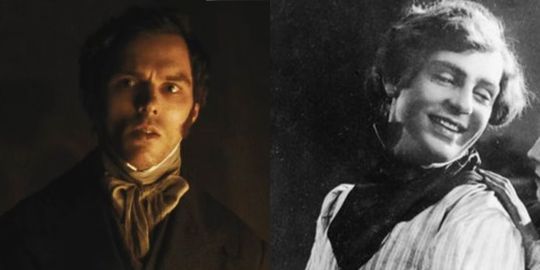
Thomas Hutter has little in common with Jonathan Harker beyond his choice in career and his time at a vampire's castle. Despite his careful attachment to his wife, he does not actually take her opinions into consideration when he plans their life - he prioritizes his social and financial advancements, which are of no interest to her, and which he sees as his duties to her and to himself; and, when she exhibits any of her unusual or melancholic traits, he does his best to try and move past them as quickly as possible. He does not experience the same attraction to the horror that she does; he cannot bring himself to understand it; and both in 1922 and in 2024, he is also largely oblivious to her eccentricities, gifting her flowers despite the fact that she does not like to see them picked and dying in a vase. That is a far cry from Jonathan - who knows his wife's love of train schedules, who is practicing shorthand with her, and who is willing to join her in cursed, godforsaken undeath when faced with the possibility of her turning. Ultimately, Thomas exists too firmly within the same societal constraints that Ellen abhors, and their relationship has none of the foundation that is unshakably shared by Jonathan and Mina.
At the same time, while the Anna is a parallel to Lucy, and her husband is a corresponding Arthur, the Hardings (once again) have no particular commonality with them. Their characterization remains undeveloped in the original 1922 film - and while Eggers does grant them some definition, it is still in no way similar to Stoker's.
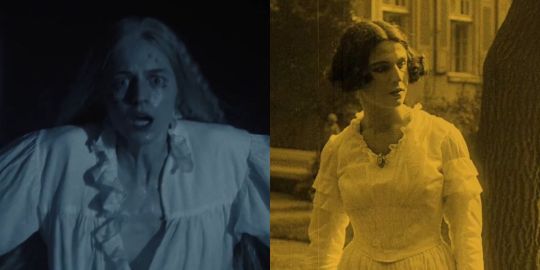
Stoker's Lucy is a charming, cheerful, flirty, and a little coquettish young girl; she exists on the cusp of womanhood and marriage, and her pre-vampire arc revolves around her choice between three almost-equally delightful suitors. She adores and idolizes Mina, she is childishly excited about her future; and in these things, she is very different from Anna, who is already married, a mother of two with one on the way - and who does care for Ellen, but in a motherly, rather than girlish, fashion.
Her husband, too, is quite different from Arthur Holmwood.
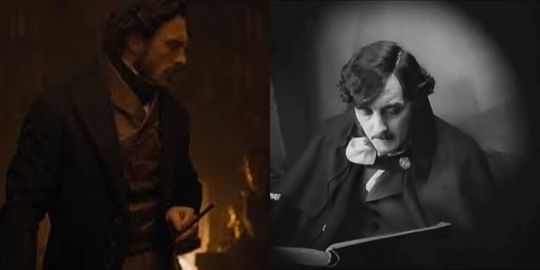
In 2024, Friedrich Harding is - above all else - the film's personification of the trap that is patriarchy. He is the epitome of what a man is expected to be: a successful business owner with a pretty blonde wife and 2.5 kids (I thought Anna's pregnancy was very much on the nose. Quite literally, 2.5 kids!). He is generous, he cares for his family, and he is firmly Rational. On the surface, Harding appears to be an ideal made flesh; and as the film progresses, it becomes evident that this ideal is designed to crumble.
Much of Harding's rationality is heavily hypocritical. While he claims to be making all his decisions based on pure logic, Ellen's - an outsider's - perspective exposes the truth behind his motivations. He ignores her warnings because he does not like her and considers her impudent; he kicks his own sick best friend out of his house with only his similarly sick wife to care for him, because he is annoyed and unsettled by their references to the supernatural; he refuses to listen to Von Franz and ignores the danger his family is in, because he is frightened of losing them to something he cannot comprehend, rather than a mundane, potentially treatable illness. All of these decisions are emotional, rooted in his misogyny and closed-mindedness - and so, Harding loses his daughters, his wife, his unborn son, as well as the unflappable, rational facade he had been so carefully maintaining. He ends the film a wreckage of himself, having committed necrophilia with the corpse of his wife because he was emotionally, irrationally unable to let go of her even in death; he dies of the plague that came to Wisborg through his own ship yard, holding her in his arms. Even under the guise of benevolence, his patriarchal worldview undermines and fails him entirely. It is a terrible thrill to watch him fall apart, and the ruin that is left in his place is one of the most obvious illustrations of the story's principal themes.
The other characterizations follow a similar sort of pattern. Sievers, unlike Seward, has no romantic rivalry with Harding; and beyond a professional connection, they are not really friends. Von Franz is far less knowledgeable about vampires than Van Helsing - for the majority of the film, he is stumbling in the dark with the rest of the cast, only finding a way of destroying Orlok in Herr Knock's codex. Knock, too, is far less noble than Renfield - even though he is just as insane as his counterpart, he sees Ellen as an object to be traded for money and power, rather than a kind soul that he would die to protect.
(Quincey Morris, unfortunately, does not exist in Nosferatu. Murnau hadn't found a place for a cowboy in his production; consequently, Eggers could not, either.)
The point is, really, that while Dracula and Nosferatu share a common premise, a comparison between them cannot be made without acknowledging the glaring differences between their characters. For instance, even though Orlok's relationship with Ellen is toxic in the usual vampiric way - part sex, part horror, part possession, part liberation - Thomas is by no means a perfect partner for her, either, because he is not Jonathan Harker, and Ellen is not Mina. Similarly, Von Franz, Sievers, and Harding are not a brave vampire hunting team - they are all blind, each in their own specific way (Von Franz, lacking straightforward knowledge; Sievers, trusting Von Franz without question; Harding, unable to think outside of societal rules). Expecting them to react to their situation the same way as the cast of Dracula is an exercise in futility.
As such, if you do get the chance to see the film again, or if it merely plays in the darkness of your skull when you close your eyes - instead of fixating on the few surface-level similarities between two different vampires and the people they haunt, allow the story of Nosferatu to seduce you on its own terms. Whether it is 1922 or 2024, we, as viewers, deserve its living blood - rather than the shadow of its predecessor.
#nosferatu#nosferatu 2024#robert eggers#lily rose depp#bill skarsgård#nicholas hoult#aaron taylor johnson#willem dafoe#ralph ineson#dracula#bram stoker#count orlok#count dracula#ellen hutter#mina harker#thomas hutter#jonathan harker#jonmina#orlok#nosferatu analysis#nosferatu meta#horror#gothic horror#horror analysis#film analysis#nosferatu spoilers#nosferatu 1922
328 notes
·
View notes
Text
Right Infront of My Salad?

Request: @dreamtogether2000 I was only doing it because I was curious but then I got Obsessed?! Please this with gn reader is everything I love! Go Buck Wild.
AN: First of all what a pick. Second of all, thank you for requesting this. I love writing crack fics especially this one was awesome. I hope you like it. We shall name this the Tropesvania Event- feel free to request
Genre: Fluff
Pairing(s): Adrian Tepes x GN Reader
Summary: Obsessed-gn-drabble

“They are, to put it mildly…” Lisa cringed, glancing into the camera, “obsessed with each other.”
“They’ve lost it. Whatever this is, it’s worse than anything unholy,” Dracula deadpanned, his tone dripping with the resignation of a centuries-old vampire.
Somehow, it had come to this: Dracula and Lisa, dragged onto Dr. Phil, seated stiffly next to their son, Adrian, and you. The root of the chaos.
Yet, the elephant in the room remained unaddressed. And riding triumphantly atop that elephant, entwined as if nothing else in the world existed, were Lisa and Dracula’s beloved son and you.
It had all started innocently enough, during the honeymoon phase of dating. At first, Lisa had found it endearing. Adrian gushing about you had been a breath of fresh air.
Every detail about your smile, your laugh, your favorite book had been recounted with an enthusiasm so pure it melted even Dracula’s icy heart.
Lisa had helped Adrian pick out the right outfits, thoughtful gifts, and conversation topics to avoid awkward silences. Dracula had joined in too, bemused by the adorable mess his son had become under the spell of young love.
Then, they met you.
From the moment of that first introduction, you had stormed into Castle Dracula like a burst of spring sunlight, your chaotic energy scattering the stoic gothic gloom.
Supper, once a quiet affair for three, transformed into a nightly event for four. The castle seemed warmer, brighter—alive. Though neither parent would admit it, there were moments they almost welcomed the change.
It was as if the wintery gloom of their home had been replace with fistfuls of spring shoved up ever nook of the castle.
But young love is nothing if not overwhelming.
Catching the two of you making out had been amusing at first, Dracula turning a delicate shade of crimson and retreating with an indignant swoosh of his cape.
But the charm wore thin quickly. After exactly twenty-three incidents of stumbling upon you in her lab, Lisa’s patience finally snapped.
And yet, here you were.

“I love you,” you giggled, nestled against Adrian, your hands wrapped around a mug of hot chocolate, the matching rings on your fingers glinting in the firelight.
Across the room, Lisa and Dracula watched from the couch, their expressions somewhere between weariness and acceptance, as Adrian’s face lit up to match yours. “I love you more,” he replied earnestly, leaning in closer.
“Noooo,” you drawled, sticking your tongue out at him playfully. “I love you more.”
Adrian pressed a kiss to your cheek, his golden eyes brimming with adoration. “I love you more than anything.”
Lisa saw Dracula’s face turn a distinct shade of green. Whether it was from the sweetness of the hot chocolate or the relentless PDA, she couldn’t say.
The count excused himself abruptly, clearing his throat as both parents caught sight of Adrian’s hand slipping under the blanket.

A single day. Adrian had been gone for one day to retrieve an ancient tome.
It had been an ordeal pulling him away, his golden eyes darting anxiously between you and the door as he nodded solemnly to your endless instructions about his health. To Lisa’s surprise, you had smiled and sent him off with a merry wave.
It unsettled both parents when you slammed the door shut immediately afterward only for your composure to crumble into pieces.
“I miss him,” you whimpered, staring forlornly at the cracks in the stone floor. “However shall I endure this?” you sobbed, burying your face in your arms.
For hours, you parked yourself by the door, refusing to move, before embarking on a grieving tour of the castle. Every room bore witness to your dramatic laments as you sprawled across tables, sighed mournfully in hallways, and flopped listlessly onto chairs.
Lisa and Dracula followed at a safe distance, watching in silent horror. By the end of the day, Lisa questioned her son’s doting nature, and Dracula could only mutter, “I'm too old for this Lisa.”
When Adrian finally returned, all hell broke loose.
You bolted toward him the moment the doors opened, nearly tripping over the carpet in your haste to reach him. Lisa and Dracula stood frozen in place, watching the soap opera that Castle Dracula had somehow become unfold before their eyes.
But it wasn’t the excessively affectionate reunion that left them speechless. It wasn’t even your tearful declarations of love or Adrian’s matching intensity.
It was the bold black ink scrawled across Adrian’s arm.
Your name. Permanently tattooed, proud and unashamed.
The sight left the family in stunned silence, each member processing the revelation in their own way.
For Lisa, it was an emotional breakdown, complete with head-in-hands groaning. For Dracula, it was a mental and spiritual crisis, punctuated by a mumbled, “By all the dark powers… what has he done?”
Meanwhile, the happy couple remained blissfully unaware of the chaos swirling around them, lost in a world that consisted of only each other.
Castle Dracula would never be the same again.
360 notes
·
View notes